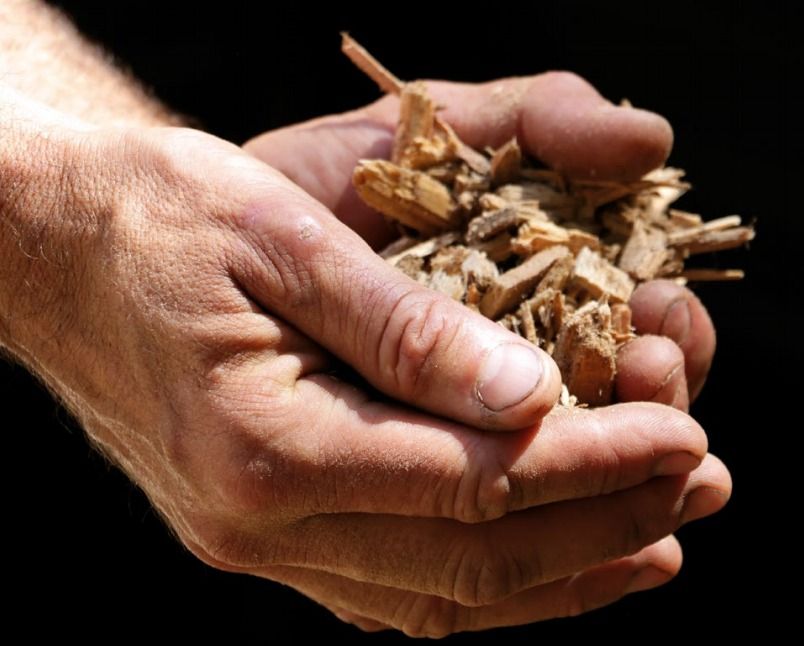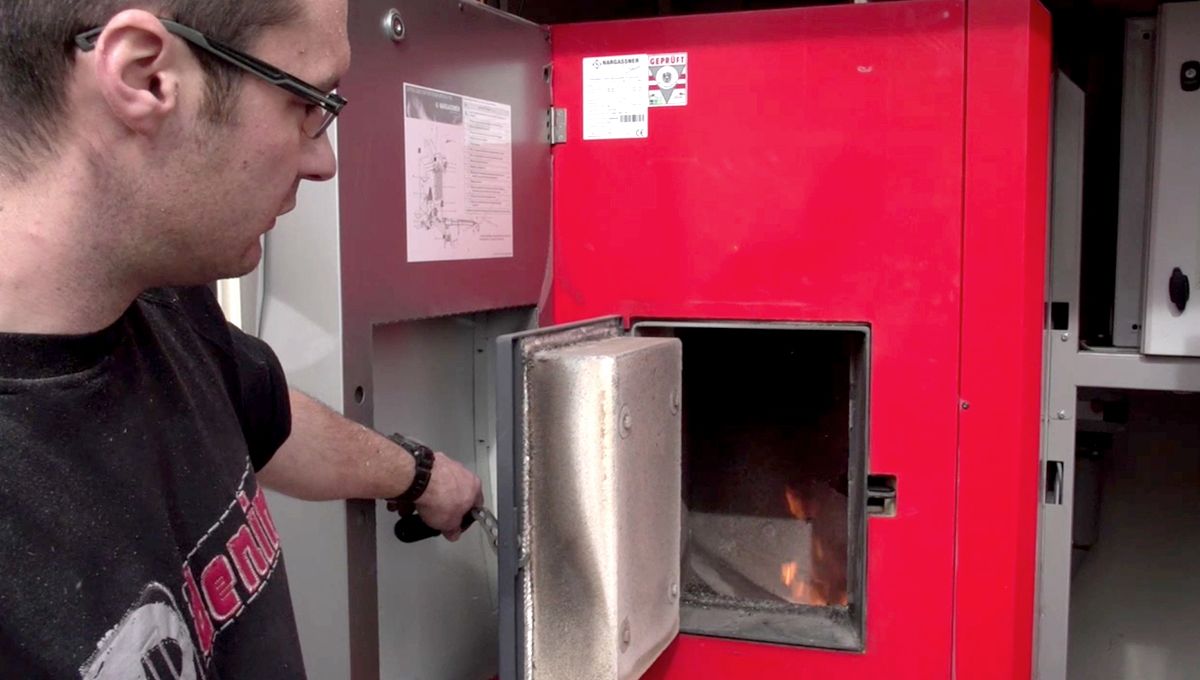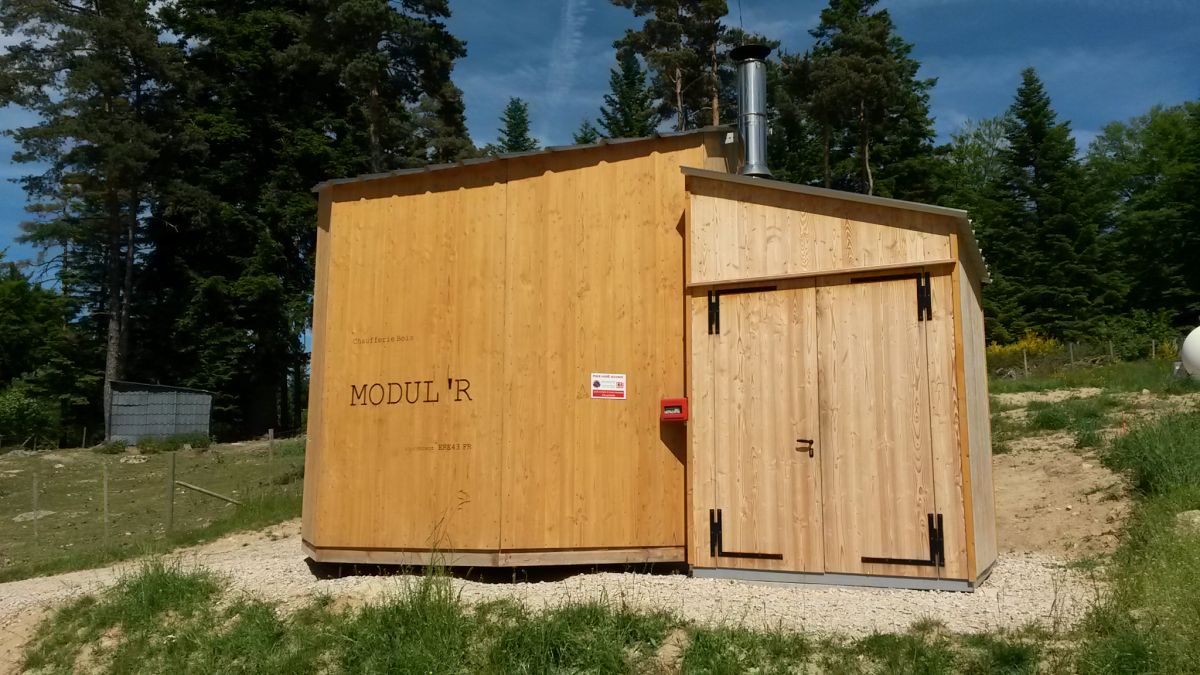[Focus] ERE 43: Local cooperation for the production and sale of heat
![[Focus] ERE 43: Local cooperation for the production and sale of heat](https://www.eclaira.org/data/sources/users/3/erer431.webp)
ERE 43 is a company specializing in the control of energy and the development of renewable energies. In this context it runs several activities including a turnkey heat sales service, meaning to say that it doesn’t sell boilers but provides energy.
To do this, the company has designed micro wood-fired heating plants (Modul'R) comprising a wood-fired boiler and a storage silo for wood chips. It takes care of the financing, installs these boilers near the users’ buildings and connects them via underground conduits. ERE 43 remains the owner of the equipment. It manages the supply of woodchips and maintenance. The offer concerns public or private institutions with large areas to heat, such as holiday centres, retirement homes, aquatic centres, restaurants and town halls. A heating plant can supply several structures simultaneously as well as individual houses which are allowed to connect to the facility.
A locally rooted initiative
ERE 43 is based in Haute-Loire, a high-lying region which has significant forest resources and large heating requirements. For reasons of profitability, efficiency and quality of service, the heat selling activity is spreading locally, based on an integrated sector philosophy. The entire sector is made easier to manage by the cooperative community-oriented enterprise (Scic) status adopted in 2007*.
* Some sixty public and private cooperatives are associated with the capital and governance of ERE 43.
The wood chips feeding the boilers are manufactured by ERE 43 from by-products deriving from the activities of local associate foresters and farmers (carpentry and forest maintenance). The heating plants are also made in the area by partner companies.

This scale is in line with the desire to develop local renewable energies and forest resources and know-how from the Haute Loire region. Distance is also a key factor in defining the area over which heat is sold. This is because the company must be able to act quickly in the event of a breakdown even when roads are under snow. The heating plants are therefore located within a radius of 30 kilometres around the ERE 43 "wood-energy hub». Similarly, the three platforms where the company stores its wood reserves are close to the facilities. Limiting the distances travelled is also a way to reduce the CO2 balance and the cost of transporting wood.
The distance requirement limits the size of the market but at the same time is a factor of resilience because the company benefits from word-of-mouth and proximity is seen as a guarantee of trust. In addition, being present locally and having knowledge of the area mean that a tailor-made offer suited to the needs of the area can be proposed.
Change of scale: a decisive step
The transition to a critical size is decisive for the balance and survival of any activity. This step is essential because it makes it possible to benefit from more substantial financing, achieve economies of scale, and to become competitive.
ERE 43 created the concept of wood micro-heating plants and had to leave the experimental phase, moving from the prototype stage towards a larger production of Modul'Rs. The issue of financing was (and remains) crucial. A milestone was reached in 2011-2012 when ADEME granted funding for a group of projects, allowing the company to develop twelve heating plants simultaneously. This was a real lever because to put together a financial package specific to each project was a complicated and expensive task.
Exceeding the first critical threshold - a dozen heating plants in this case - makes it possible to develop better adapted services and more efficient solutions, such as a logistics system that can deliver fuel to a growing number of facilities. Today the question of boosting production capacity is still a challenge for the company, which has 22 heating plants.

The challenges of changing scale
According to Jacques Villevieille, manager of ERE 43, it is necessary to be able to analyse what the company is able to do and identify anything that becomes an advantage or a drawback for when changing scale. This helps to determine which activities should be continued, stopped or changed.
Then certain things that have been done need to be questioned and aspects of the activity built differently, even though these have often been long thought out and painstakingly put together. This was the case for the heating plant monitoring system. This was created when the company started selling heat, and was no longer an optimal solution when there were more than five heating plants. So it had to be redesigned.
Another factor of resilience throughout the development of the activity lies in the ability to adapt to certain external changes that may seem trivial but can have significant consequences on the balance of the company. For example, decisions made by suppliers, such as shutting down manufacture of a component or launching a new range of heating plants, lead to changes in the design of the heat sales system.

Promoting the heat sales model
ERE 43 is in contact with several structures to investigate the possibility of duplicating the heat sales model it has developed (the heating plant system, the economic model, and management as a Scic). For the moment it has sold a Modul'R to the cooperative Les Fermes de Figeac in the Lot département.
But it is not easy to replicate such an initiative because of financing issues and external factors. The energy sector relies on factors that are difficult to control, such as changing consumer trends, the "popularity" of energy, public incentives and the changing price of materials. The price of oil, currently falling, creates a wait-and-see phenomenon, but conversely, in the event of a rise, it may create anxiety, which is also incompatible with setting up large-scale projects.
Consult the presentation of ERE 43 on ECLAIRA
Photo credits ERE 43
Source: ECLAIRA - Newsletter Number 8 / October 2017
>Read and download the ECLAIRA Newsletter No. 8 as a PDF
> Read other articles in this issue
> See all the ECLAIRA newsletters
Newsletter edited by CIRIDD with support from Région Auvergne - Rhône-Alpes